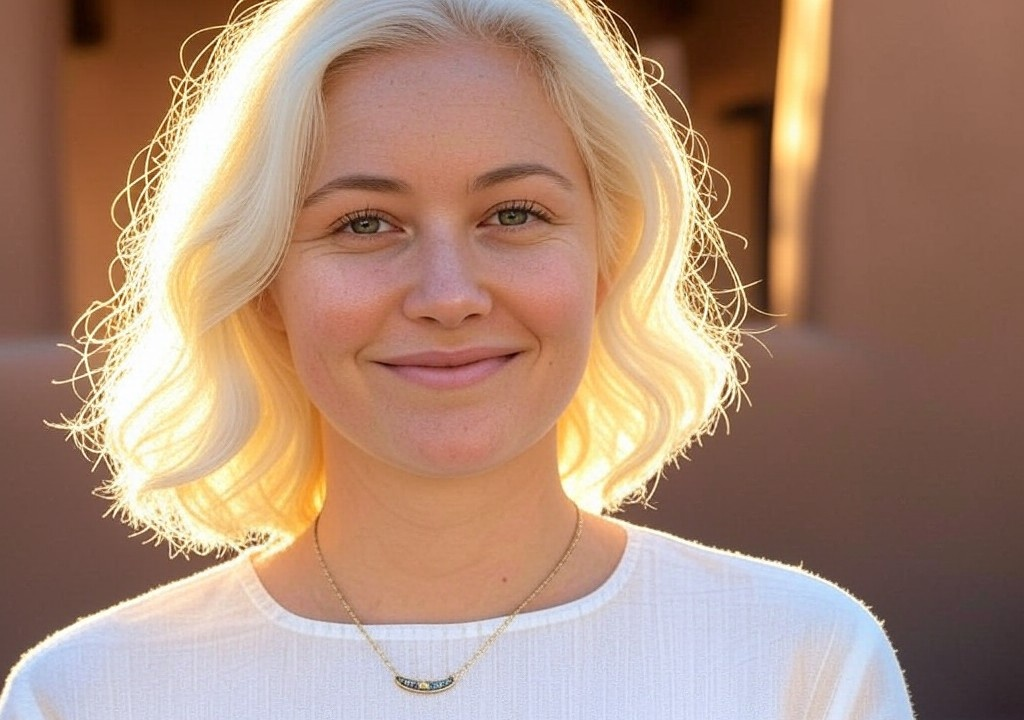We all have scars. Some are boldly visible, like a jagged line on a knee from an overzealous childhood bike ride. Others are tucked deep inside, the result of heartbreaks or setbacks that don’t show up on the skin but carve themselves into the soul. The thing about scars—whether literal or metaphorical—is that they tell a story. And in the unpredictable wilderness of relationships, they hold more power than we give them credit for.
Let me introduce you to one of mine. It starts with a cactus.
The Thorn (Don’t Worry, There’s Humor Here)
When you grow up in the desert, you learn pretty early that cactuses are not your friends. I was eight and determined to climb the sort of gnarled, too-high-to-be-safe fence you’d see in a Georgia O’Keeffe painting. I slipped, fell, and landed forearm-first into a prickly pear cactus. The aftermath wasn’t pretty—imagine my mom with tweezers, a flashlight, and an expression that screamed, “I told you so.”
That cactus left behind a scar shaped vaguely like New Mexico, which feels poetic, given where I live. But as mortified as eight-year-old me was, this scar has become part of who I am. It’s the conversation starter I use when people notice it during gallery openings: “Oh, you like my cactus tattoo? Mother Nature herself designed it.”
The beauty of literal scars like this one is their unapologetic honesty. You can’t Photoshop them away. But where they show resilience, emotional scars reveal that same tenacity through layers of vulnerability. Here’s the kicker: both kinds of scars have their place—and their power—in relationships.
Emotional Scars: The Badges You Can’t Fake
Here’s a question: when did we all get so fixated on perfection? Instagram filters, the façade of eternal happiness, dating profiles curated like art exhibits—it’s exhausting. But let me let you in on a secret I’ve learned the hard way: your flaws tell better stories than your perfections ever will. They are what make you durable, relatable, human.
I’ll never forget my first big breakup. I had been with someone who loved to call me “his dream.” Sure, that sounds sweet, but it turned toxic when I dared to have my own ambitions that didn’t align neatly with his. The relationship ended with a painfully poetic fight involving an emptied bookshelf (my books, his temper). For months afterward, I wrestled with impostor syndrome in the dating world: Was I too much? Too independent, too focused on my goals? Should I tone myself down?
The short answer: absolutely not. That breakup branded me with an emotional scar, sure—but it also left me carrying self-awareness like a survival kit. Over time, I learned to show up for relationships as my whole self instead of shrinking to fit another person’s idea of who I should be.
And you know what? The best people will love you for your scars—not despite them. Why? Because those lines, both real and metaphorical, prove that you’ve lived, loved, tripped, gotten back up, and are willing to stick around for life’s messiness.
Why Scars Matter in Love
Okay, so what does all this scar talk mean when it comes to relationships? Here’s the deal: scars—visible or not—give you authenticity. They tell your story without you even needing to narrate it. When you let someone see them, you’re opening the door to deeper connection. Here’s how:
-
They Prove Resilience: Ever notice how in movies the love interest is rarely fault-free? Think Bridget Jones embarrassing herself in a bunny suit or Nick Miller being, well, Nick Miller from New Girl. Imperfections make characters lovable because they’re relatable. The same applies to you.
-
They Show You’re Real: Scars—literal or metaphorical—say, “I’ve been through something, but here I am.” That honesty is magnetic. Imagine someone showing up on a first date and giving you their polished, Instagram-ready highlights reel. Now imagine a date where they share an embarrassing or vulnerable moment. Which scenario feels more human? Exactly.
-
They Make Connection Easier: Scars create bridges. When you’re open about what you’ve been through, you invite others to share their stories. Maybe you show them your New Mexico-shaped mark; maybe they tell you about the stitches they got from trying to skateboard at 30. Either way, it’s the beginning of a genuine bond.
Scars to Look For in Others (And Why They’re a Good Thing)
If you’re dating or deepening a relationship, learning about someone’s scars—what shaped them, hurt them, and ultimately healed them—can be as intimate as learning their favorite song. Look for these indicators:
- The Career Scar: The job they didn’t get or the business venture that failed. These usually come with lessons in perseverance and humility, two underrated qualities in any partner.
- The Heartbreak Scar: A past relationship that ended the hard way (aren’t they always?). When someone’s open about this, it shows they’ve reflected on the experience instead of burying it.
- The Wild Story Scar: Literal scars from things like bike crashes or questionable choices at bachelorette parties (I’m looking at you, tequila). Brace yourself for an unforgettable story when these surface.
Flipping the Script: How to Wear Your Scars Proudly
If you’re wondering how to stop hiding your scars in relationships, start with this:
-
Shift Your Perspective: Instead of viewing scars as weak spots, see them as evidence of your resilience. Got ghosted? That’s not failure; that’s dodging someone without the emotional maturity to communicate. Endured a painful childhood? That’s your proof you’ve survived.
-
Tell Your Story Boldly: Like my New Mexico-shaped cactus scar, there’s always an artful way to own what’s shaped you. Think of scars as plot twists in your grand narrative. “I survived that” is a pretty powerful storyline.
-
Recognize Scars in Others: Celebrate when someone shares a piece of their past. This is intimacy 101.
The Art of Loving Imperfectly
At the end of the day, relationships aren’t about airbrushed perfection or spotless histories. They’re about two flawed people finding belonging in each other’s messiness. It’s about saying, “I see both your good and your bad—and I choose to stick around.”
And maybe, just maybe, it’s about a scar or two. Whether it’s shaped by a cactus in Santa Fe or heartbreak in a too-small apartment, wear it proudly. Scars don’t just tell stories—they tell your story. And in a world obsessed with filters, there’s nothing more refreshing, more honest, or more loveable than that.




















